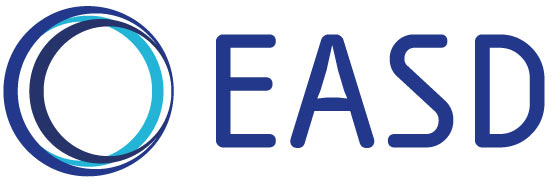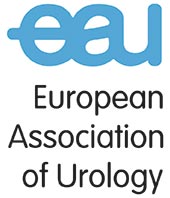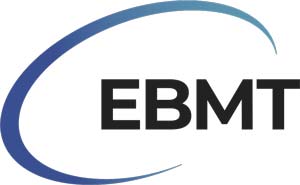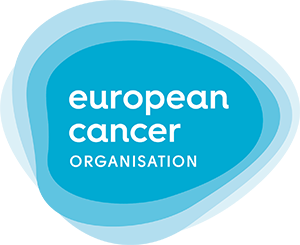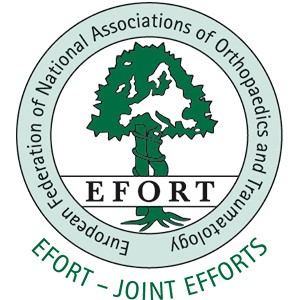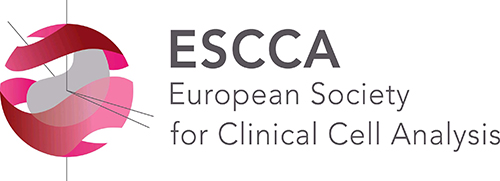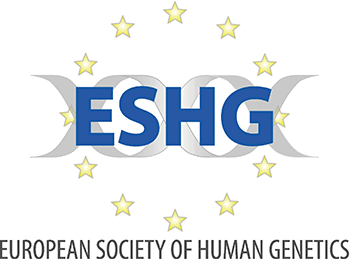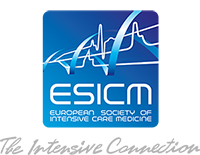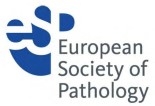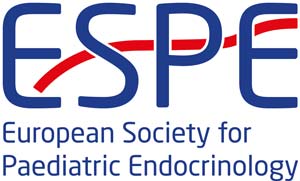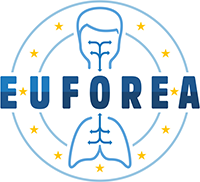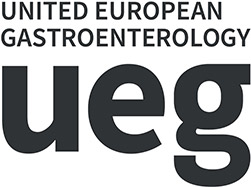Healthcare Professionals and Scientific Organizations Members of the Biomedical Alliance in Europe have developed a Code of Conduct, approved by the BioMed Alliance General Assembly.
About the BioMed Alliance
The Biomedical Alliance in Europe (BioMed Alliance) is a unique initiative of 34 leading European medical societies uniting more than 400,000 researchers and healthcare professionals.
The BioMed Alliance was created in 2010 to gather strength across different disciplines and areas in biomedical and health research to address common issues at European level.
Mission
The BioMed Alliance is committed to promoting the best interests and values of researchers and healthcare professionals organised in not-for-profit scientific medical associations and organisations, across all medical disciplines in Europe, in those general areas where common interest is identified.
The Alliance is also committed to promoting excellence in European healthcare and in biomedical research and innovation with the goal of improving the health and well-being of all European citizens.
BioMed Alliance aims to:
- speak as a common voice of all its members
- facilitate and improve biomedical research in Europe
- develop a framework for better training and mobility of researchers and healthcare professionals in Europe
- represent its members being medical associations, and their members, in common policy and strategic matters
- improve public understanding of medical science in Europe.
BioMed Alliance intends through its actions to:
- promote excellence in European biomedical research;
- strengthen the representation of biomedical researchers, disciplines and associations;
- advocate for increased funding in favour of biomedical research; and
- thereby improve the health and well-being of all citizens of Europe.
The BioMed Alliance’s members
Table of Contents
THE ETHICAL FRAMEWORK OF THE BIOMED ALLIANCE
- Humanity
- Integrity, Quality, Independence
- Accountability and transparency
- Equality, diversity and inclusion
THIS CODE OF CONDUCT AND SPECIFIC HCOs ACTIVITIES
- Representation
- Continuous medical education and continuous professional development: general guidelines
- Congresses
- Exhibitions: promotion of pharmaceutical products
- Publications
- Research funding
- Clinical Practice Guidelines
- Registries
CODE OF CONDUCT
Healthcare Professionals and Scientific Organizations
Members of the Biomedical Alliance in Europe
The Biomedical Alliance in Europe (the BioMed Alliance) unites European organisations of physicians and researchers in the biomedical field. The BioMed Alliance is committed through its actions to promote excellence in European healthcare and biomedical research and innovation, with the goal of improving the health and wellbeing of all European citizens. The member organisations offer essential, fair, balanced and unbiased continuing professional education; diagnostic and treatment guidelines to ensure the highest scientific and medical standards; and evidence based scientific progress, in order to enhance patients’ care.
Objectivity and the transparency of medical professional organisations are critical to carrying out their mission and to gaining public confidence. A Code of Conduct covering both ethical principles and conduct is a necessary underpinning to achieve this.
Healthcare professional and scientific organizations, referred to from here on as HCOs are organisations that aim to represent their medical specialty and its practitioners in Europe. They are all associations that have an interest in patient care, and in which healthcare medical specialists or scientists represent a majority of members in governing bodies. These include: European organisations representing national organisations or individual healthcare professionals (e.g. generalists or specialists in a specific disease area); European organisations that exist to promote a scientific discipline/profession; and general umbrella organisations (e.g. those representing either European specific disease organisations and/or national umbrella organisations).
European HCOs are all non-governmental and not-for-profit organisations whose members, convened in general assembly or business meeting, are the ultimate decision making entity. Furthermore, their members[1] volunteer their time and expertise to sit on governance and executive bodies such as boards and committees. They do not receive remuneration other than justifiable expenses, such as travel and subsistence costs. The work performed is volunteer work; most often conducted in addition to their high paced clinical and/or research work.
European HCOs are created to support medical specialties and their practitioners. Traditionally, this involves the recurrent organisation of a congress and the publication of a scientific journal. Today most organisations have professionalised and proliferated to include research funding, guideline development, additional scientific publication channels, more education opportunities – online as well as offline, political interest representation, etc. Consequently, staff infrastructure has been created to support the member volunteers in the development and implementation of these activities. Staff members are remunerated for their work.
Medical specialists – whether clinician or scientist, or both – deliver health care and knowledge. The purpose of European HCO’s is to support medical specialists achieving progress and excellence in both. They do so by facilitating and promoting science, by developing and providing education, and by facilitating the advancement of clinical care.
As health care and knowledge are highly valuable public benefits, it is of the utmost importance that they are delivered in an independent way
It follows that governance, organisation, and activities are independent from any interest – such as governmental, commercial or personal interests – but those of the medical specialty and its practitioners. Assuring this necessitates transparency to allow the assessment of independence; and, when assessed, accountability to the members, to the patients and to society.
The European HCOs of medical specialists are joined by their membership of the Biomedical Alliance in Europe (BioMed Alliance) and by a shared appreciation of the importance of these core values.
Under the umbrella of the BioMed Alliance a dedicated Task Force was appointed to create a Code of Conduct. Once developed this code has been approved by the BioMed Alliance General Assembly. This code is updated on a regular basis, lastly November 2021. The individual members of the BioMed Alliance have adopted the Code in their organisations in full, and are authorized to adapt it according to their individual and specific needs, if stricter ‘guidelines’ are applicable.
THE ETHICAL FRAMEWORK OF THE BIOMED ALLIANCE
The rationale for reinforcing core principles
The BioMed Alliance wishes to maintain a Code of Conduct covering its external relations and complementing existing codes of practice such as from EFPIA, MedTech Europe, COCIR and UEMS, in line with the guidelines of professional organizations and regulatory bodies in Europe. Adoption of this Code reinforces the core principles that help to maintain professional independence, objectivity and scientific integrity. It also helps to ensure that the Alliance’s interactions and collaboration with the healthcare sector will be for the benefit of patients and for the improvement of scientific standards and medical care in its respective specialty fields.
The BioMed Alliance endorses this code as a group of organisations committed to raising funds to support initiatives and investing revenues back into furthering knowledge, education and expertise in the various scientific, medical and health fields.
Ethical values in a culture of responsibility
The Alliance’s core ethical values are oriented towards excellence and integrity in scientific and medical clinical practice in order to generate and consolidate trust at all levels. The ethics of any scientific society should go beyond the sole development of an ethical framework. They must foster a culture of responsibility in the organisation, focussing on patients’ interests. The BioMed Alliance will act as an open forum for discussion of these matters. The Code is therefore based on a spirit of openness, integrity and dialogue, with the ultimate goal of fostering better healthcare outcomes.
BASIC PRINCIPLES
The BioMed Alliance core values are: humanity, integrity, quality, independence, respect, accountability, transparency, equality, diversity and inclusion.
Humanity
The BioMed Alliance is strongly attached to the values mentioned in the Declaration of Helsinki and the Declaration of Geneva. These rules refer to the highest respect of human beings and animals, responsible resource allocation and preservation of the environment.
HCOs are encouraged to constantly update and promote these ethical rules.
Integrity, Quality, Independence
To secure the independence of their organisation, HCOs must abide by the following principles:
- HCOs are a not-for-profit organization.
- Members of the HCOs adhere to the basic principles of responsible and ethical research and innovation.
- The membership of the HCOs elects, periodically, its representation (usually the Board).
- Members of the HCOs must declare interests in an open, systematic and up-to-date manner, and the HCOs should make these available to its members.
- HCOs must define policies for declarations of interest and for resolving potential conflicts of interest such as: voting, positions and tasks in the HCOs.
- Board, committee and staff must declare interests that conflict, potentially conflict or could be perceived to conflict with the actions and mission interests of the
- It should be the responsibility of each individual to comply with this requirement and of the HCOs to collect and make available this information.
- HCOs may accept funding such as grants, sponsorships or fee for services from commercial entities and funding agencies.
- HCOs are autonomous in relation to the management of its own funds. HCOs must preserve their independence and prevent the appearance or reality of undue influence or bias.
- These principles should be implemented in the statutes, by-laws or internal rules of HCOs..
Accountability and transparency
The following principles will be followed by HCOs:
- Request of support from HCOs to external partners must be for activities aligned with the mission of the HCOs.
- HCOs agree to provide information about the use of funds in an open and reasonable manner.
- HCOs will respond to any reasonable request for information on their activities within a reasonable time period
- The statutes and by-laws of HCOs are publicly available
- Any declaration of interests of Board, committees and staff will be publicly available.
- HCOs must agree to the disclosure of any Transfer of Value from the healthcare industry.
- HCOs are supportive of individual disclosure of transfers of value by their members
- HCOs will make annual audited financial reports and annual activity reports publicly available.
Equality, diversity and inclusion
HCOs should uphold and promote equality, diversity and inclusion.
THIS CODE OF CONDUCT AND SPECIFIC HCOs ACTIVITIES
Representation
When carrying out representation activities (e.g. advocacy), members and staff of HCOs shall abide by the following principles:
- Transparency: declare their full name, employer, position, funding and the interest represented, and register with the EU’s Joint Transparency Register.
- Conflict: avoid any professional conflicts of interest; where such conflicts occur, disclose such conflicts to affected parties and; seek to resolve such conflicts in advance of any advocacy activity.
- Integrity: act with honesty and integrity at all times and not disseminate false or misleading information.
- Confidentiality: honour and respect confidential information.
- Inducement: not obtain or try to obtain information, or influence any decision, dishonestly, or by use of undue pressure, financial, personal or other inappropriate inducement.
- Influence on elected or other public officials, and HCOs members: not propose or undertake any action, which would constitute an improper influence on any members officials or staff of 1) State Parliaments or Assemblies,2) national governments, 3) local authorities, 4) regulatory bodies, 5) EU institutions, as well as any other public or private stakeholders.
- Competitors: not to intentionally damage the professional reputation of other individuals or organisations.
Continuous medical education and continuous professional development: general guidelines
Continuous medical education (“CME”) is provided for those in the medical field seeking to maintain their competence and learn about new and developing areas of their field. It is usually a regulatory requirement for HCOs to maintain an annual record of CME undertaken. CME covers education via live events, written publications, online programs, audio, video or other electronic media. CME is a cornerstone of continuous professional development.
When developing and organising CME, HCOs should abide by the following principles:
- HCOs are exclusively responsible for the selection of the topics or contents of particular CME activities, or in the development of the educational materials. They may be based on educational needs of the target group.
- HCOs must aim to evaluate programs effectiveness.
- CME activities will be delivered independently by the organiser and speakers, in whatever setting is deemed appropriate.
- CME activities must be held in appropriate venue that is conducive to the main purpose of the event, avoiding venues that are renowned for their entertainment facilities or are extravagant. Hospitality offered should be reasonable in level.
- CME programmes provided by HCOs are developed, peer reviewed and delivered by a faculty of experts in their field.
- HCOs are exclusively responsible for appointing a scientific committee that oversees the selection of the faculty, speakers, and producers of CME they organize.
- Potential conflicts of interest of faculty members must be both disclosed and resolved in a comprehensive manner, based upon previously declared interests.
- Organizational activities may be subcontracted by HCOs to commercial entities, provided that they are supported by appropriate transparent declarations of interest.
- Supporters may only contribute financially to CME activities, by way of an educational grant. Contributions to formal HCOs organized, regulatory recognized CME activities other than by financial contributions are not permitted unless the HCOs consider valuable any other type of support e.g.to invite a company speaker, based on transparent criteria.
- Supporters may not be involved in the development of promotional materials of HCOs organized CME activity. Any materials promoting HCOs organized CME activity distributed by the supporters of an educational grant will be reviewed beforehand by the organizer in order to ensure compliance with these principles. Any written reference to the supporters must be prefixed by: ‘supported by an educational grant from [name of commercial entity]’.
- HCOs shall ensure that all requests to supporters for information and material resulting from these activities will be directed to the HCOs, whose representatives will retain full control of the rights and responsibilities to distribute such information and material. Likewise, HCOs shall ensure that supporters shall not use these in any way to promote their goods or products in any way
- Provision of educational grants shall be governed by the relevant national and EU applicable regulations and codes governing the activities of the grantor.
Congresses
HCOs should follow the following principles in relation to Congresses they organize, or which are held in their name:
- HCOs organized CME, at congresses, is underpinned by the compilation of the scientific and educational programme, which is undertaken by scientific and educational committees of HCOs.
- All scientific and educational committee members must declare their interests, and where appropriate any conflicts that arise; HCOs must ensure that such conflicts are resolved openly.
- All staff and Board members must likewise declare their interests and identify any conflicts that may arise, which should also be resolved openly.
- The health care industry should have no influence on the scientific programme of a congress. The sessions organised by industry, such as satellite symposia, are to be clearly identified and their agenda/speakers should be reviewed by the congress scientific/ educational committee.
- HCOs office holders, those who by virtue of the office they hold are representing their HCO should not be permitted in general to present, or to chair, satellite symposia and meetings sponsored by industry or interest groups. They are present at their congresses as representatives of their HCOs, and such external activity may create the impression of HCO endorsement of particular satellite symposia, which must be avoided. In some specific occasions, congress committees may grant an exception.
- Each Speaker and Chair person during any congress must declare their interests and identity and, wherever necessary, should resolve, with the relevant HCO, any potential conflicts of interest before any presentation. Speakers should make interests clear in presentations. The same principles must be adhered to by those chairing sessions or delivering presentations forming part of the scientific programme, and by poster presenters at these events.
Exhibitions: promotion of commercial products
Within the exhibitions accompanying congresses organised by HCOs, the following principles shall apply:
- HCOs should ensure that on all relevant occasions organised by themselves, where commercial product promotion activity is taking place, all applicable laws, statutes and Codes of Conduct are understood by all participants.
- As a general principle, HCOs should make best efforts to ensure that exhibition space is intended to display promotional /scientific information on products and/or services, and not to promote the personal interests of individual HCOs and research scientists.
- HCOs should also satisfy themselves that where breaches to national and local laws, and regulations have occurred, appropriate remedies and sanctions are in place to ensure the ethical standing of the HCO and its congress.
- HCOs should ensure that each company or organisation should confirm that it has reviewed the advice and guidelines which determine the applicable codes of practice, laws and regulations in the host country and that it will adhere to these, accepting liability in all cases of non-compliance.
- Access to the commercial exhibition must be voluntary.
Publications
HCOs embrace their important mission to ensure the publication of scientific results and in doing so enshrine these principles:
- Academic peer review should be a prerequisite for the acceptance of publications and decisions to accept such publications should be based exclusively on the scientific quality and scientific relevance of the results and pertinent writings.
- Declarations of interest by researchers and authors, and the management of potential conflicts that arise in all scientific publications, should be in line with the recommendations of the International Committee of Medical Journal Editors.
- HCOs support mechanisms to prevent scientific fraud including information and training of researchers, avoidance of research environments which stimulate fraud and establishment of fraud detection schemes.
Research funding
HCOs should embrace these principles in relation to research funding:
- Research grants to a HCO may be given for a specific research topic and should follow applicable regulations.
- The process for applications reviewed by HCOs should be exclusively based on the scientific value of the applications. Independent committees of HCOs should choose the candidates to be funded and must exclude all personal or professional conflicts of interest.
- Financial agreements should have regard to provision of defined work or actions including milestone payments where applicable.
Clinical Practice Guidelines
The following principles will underpin HCOs approach to the writing and application of clinical guidelines:
- Clinical Guidelines developed by HCOs will be developed in the best interest of all patients and based on medical evidence available at the time they are written.
- The HCOs and their experts involved in guidelines will develop clinical guidelines in an unbiased, independent way, following their respective writing rules, as well as rules of confidentiality, integrity, respect and fairness towards other experts and societies, on involving patients and in the interest of best practice.
- HCOs and their experts involved in guidelines should avoid conflicts of interest. All relationships with industry shall be disclosed beforehand and for the whole duration of any guidelines’ writing process, and managed according to the HCOs conflict management policies.
Registries
These principles cover HCOs registries:
- Observational Registries conducted by HCOs should respect confidentiality, and should ensure that information or data collected about individuals are appropriately anonymised and cannot be traced back to them by other parties. In the event that confidentiality and/or anonymity cannot be guaranteed, participants must be warned of this in advance of agreeing to participate in accordance with relevant data privacy legislations.
- Supporters contributing to the whole programme of registries, and not for any specific one, should have no access to the raw data. Any request for data made by them should be subject to the approval of the appropriate Registry Executive Committee of the HCO involved.
- Protocol designs, conduct of studies, statistical analyses, manuscripts, presentations of results and publications are the responsibility of the relevant HCO team and the HCOs Registry Executive Committee; subject to contractual arrangements
CONCLUSION
The Biomedical Alliance in Europe aims at working in the best ethical way. The HCOs are expected to follow this Code of Conduct.
All members of the Alliance should comply with the Code. A member whose conduct is considered to be in breach of the provisions of the Code will be asked to account to the Alliance.
REFERENCES AND BIBLIOGRAPHY
- The Convention in 1950 - European Convention on Human Rights (November 4th 1950)
- Declaration of Helsinki CIOMS/WHO
(Adopted by the 18th WMA General Assembly, Helsinki, Finland, June 1964) - Convention for the Protection of Human Rights and Dignity of the Human Being with regard to the Application of Biology and Medicine: Convention on Human Rights and Biomedicine. Oviedo, 4.IV.1997.
- Directive 2001/20/EC of the European Parliament and of the Council.
4 April 2001 / Clinical Trials Regulation EU No 536/2014 to come into effect in 2016 - International Ethical Guidelines for Biomedical Research Involving Human Subjects
Updated version 2002 – CIOMS (Council for International Organizations of Medical Sciences) - European textbook on Ethics in research. European Commission on European research area, Science in Society. EUR 24452 EN
- Outcome of the Council Meeting, Competitiveness Council 4-5 December 2014 ; 16505/14, 3353rd Council Meeting
- Regulation (EU) 1291/2013 of the European Parliament and of the Council, 11 December 2013, establishing Horizon 2020 – the Framework Programme for Research and Innovation (2014-2020) and repealing Decision 1982/2006/EC
- Core Practices, Committee on Publication Ethics (COPE). 2017










